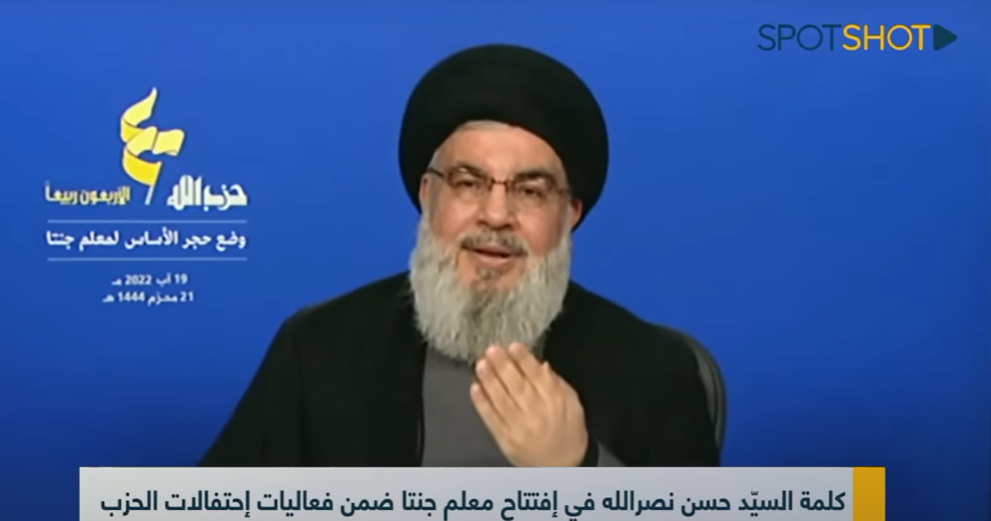In his last speech on the occasion of the Prophet Muhammad’s birthday last week, Hezbollah Secretary General Hassan Nasrallah showed ease and goodwill, his speech was moderate without using the language of promises and threats and he expressed satisfaction with the achievement of the agreementwith Israel on the maritime border.
Hassan Nasrallah now presents himself as someone who is satisfied with the diplomatic success he achieved for Lebanon through the use of the language of force and launching 4 drones at the “Karish”gas rig.
Commentators in Lebanon are already talking about Hezbollah’s moderation and its intention to strengthen its establishment within the Lebanese political system while taking greater account of the state institutions, the president, the parliament and the government.
Hassan Nasrallah sinals that he wants to integrate more into the internal political game, in the last month Hezbollah has been preparing a new political document detailing its political and economic view of Lebanon.
Hezbollah is signaling that it intends to reach an agreement on the election of the new president and the composition of the new government and to maintain calm and stability in Lebanon.
But make no mistake, the new lamb is actually a ferocious wolf hiding in sheep’s clothing.
Mohammad Raed, the chairman of the Hezbollah faction in the Lebanese parliament announced on October 16 that Hezbollah is waiting for the Israeli enemy to sign the maritime border agreement and said:
“When it signs the agreement we will go to the second option which is the implementation of the agreement, the second option is based on the readiness of the resistance, we have no trust in the enemy”.
He said that “it is not an agreement but an understanding to neutralize the natural gas production areas from harm”.
“The understandings do not mean mutual recognition” He emphasized and rejected the accusations that this is the beginning of normalization and recognition of the Israeli enemy.
It seems that Hezbollah is afraid of the results of the Israeli elections and the possibility that if a right-wing government headed by Benjamin Netanyahu is formed it will not respect the agreement with Lebanon and demand that it be reopened, therefore it is hinting that Hezbollah is on guard and is ready to use force again to maintain the understandings agreed between Lebanon and the Lapid government With American mediation.
Hezbollah is not ready to give up its achievements after it succeeded in subduing the Lapid government through terror and threats.
Hassan Nasrallah says this openly because the Lebanese achievement would not have been achieved without the power of the resistance and the drones launched at the “Karish” gas rig.
Hezbollah and its ally Jubran Bassil, the former foreign minister of Lebanon and son-in-law of Lebanese President Michel Aoun, are trying to leverage the achievement of the agreement and signal to the US that they are pragmatic partners so that the US will remove the sanctions on Hezbollah and legitimize their candidate for the new president of Lebanon.
However, the Biden administration understands Hezbollah’s spin very well, it does not see the maritime border agreement as an opening that would allow Hezbollah to influence the sanctions imposed by the administration on the organization.
The administration has not forgotten the big explosion in the port of Beirut which it attributes to Hezbollah and the economic disaster in Lebanon and the corruption due to Hezbollah’s military power and threats to the region.
Hezbollah continues to warn and threaten the use of force because it is looking for excuses to keep its weapons and serve the Iranian agenda, now it claims that maintaining its military power is necessary to make sure that Israel implements the new agreement according to its wording and also because the dispute between Lebanon and Israel on the land border has not been resolved .
Hezbollah continues to kidnap the Lebanese government and Lebanese citizens and holds them hostage in order to maintain its political and military power as an important regional factor whose positions must be taken into account.




